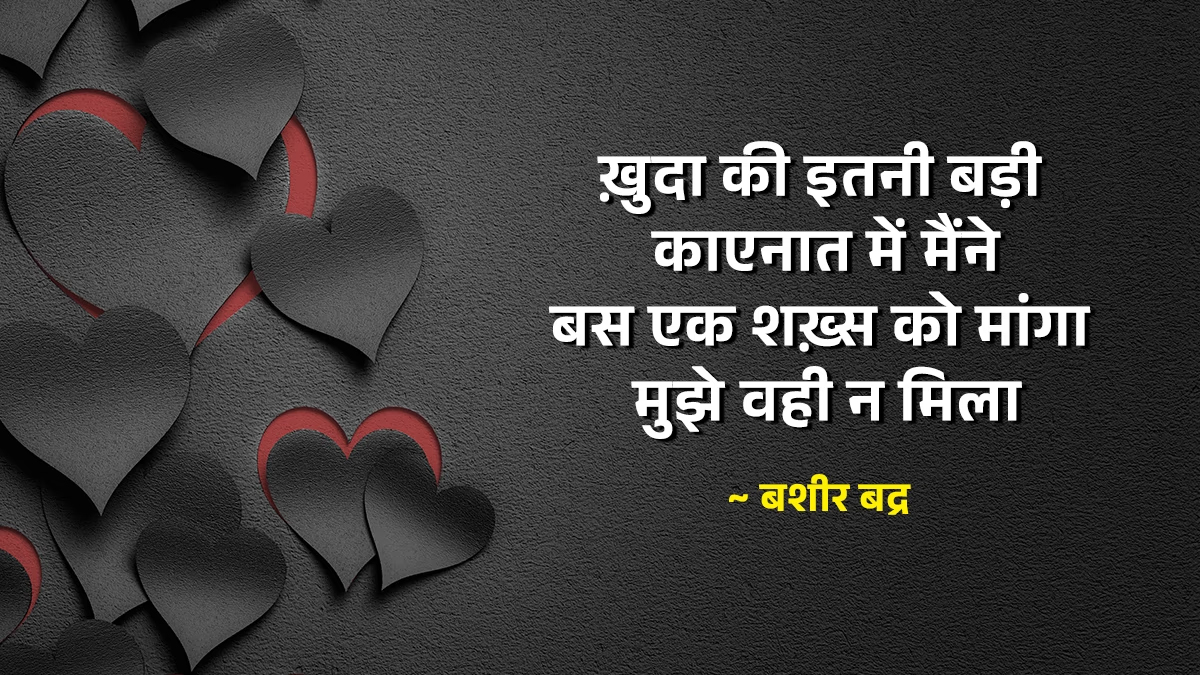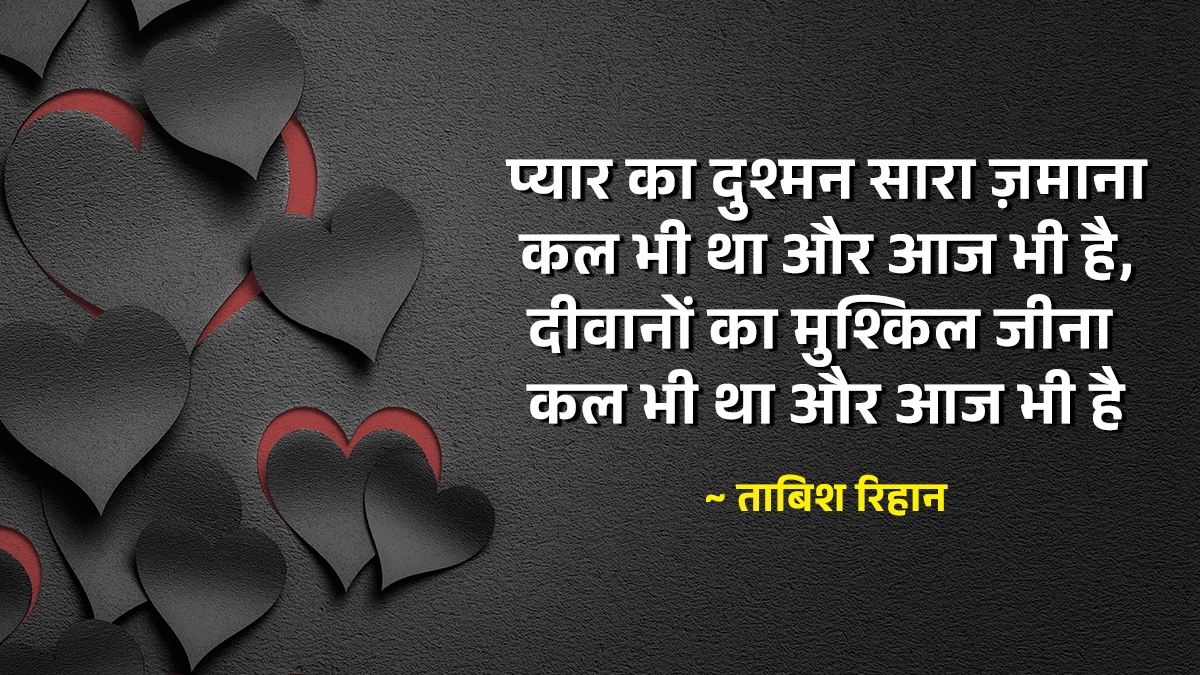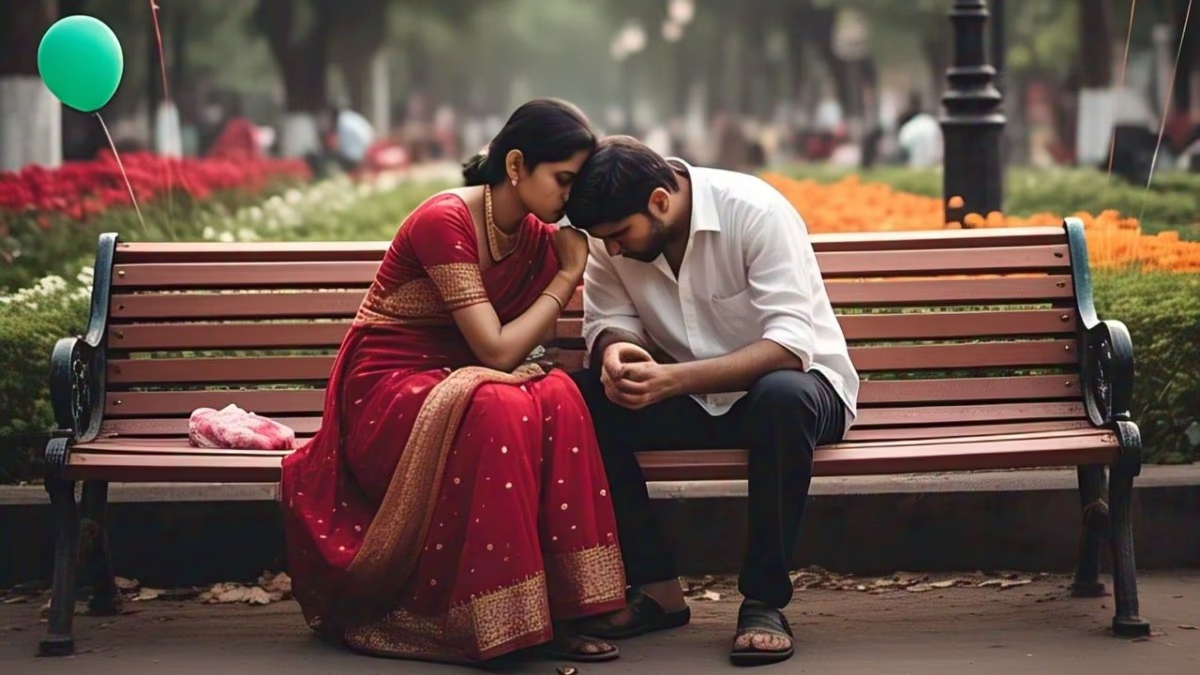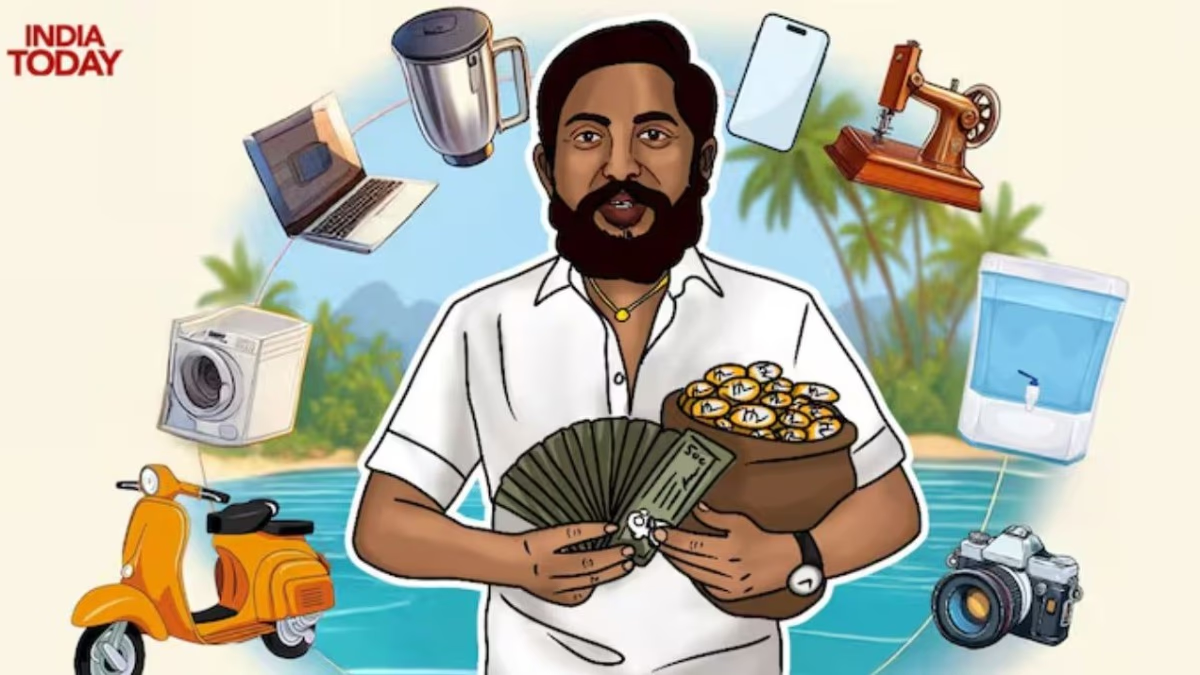Love isn't a breeze, know that at least. It's a river of fire you must dive into…
Through these lines, Jigar Moradabadi painted a vivid picture of the trials lovers face. Indeed, those in love must navigate a river of societal scorn and emotional distress. But why does society hold such disdain and envy towards lovers? We sought answers from sociologists and psychoanalysts.
Love is between two, yet society raises a battalion against them. Rarely does a love story reach its conclusion without hurdles. Love is inherently tied with a sense of incompleteness, often imposed by societal constraints. The primary wish of lovers is to remain united forever, but more often than not, separation is what they receive in return. On occasions such as Valentine's Day, cultural policing seems rampant, with many opposing love openly online and in public spaces. Have we ever, as a society, contemplated why there's so much anger towards lovers?

Source: aajtak
Professor Vivek Kumar from Jawaharlal Nehru University elaborates that societies are intrinsically designed this way. We cherish love stories in literature and film but resist their realization in real life. Gender roles significantly contribute to this outlook, with women seldom afforded the autonomy to choose partners freely. As societal markets expand, self-proclaimed protectors of culture resist market-driven changes under the guise of preserving tradition, exhibiting the most frustration towards female partners in these relationships, deeming their male counterparts as lesser.
On the other hand, JP Dubey, former Dean of Sociology at Delhi University, interprets it as a reaction to increasing pressure on traditional family structures, which are perceived as under crisis. If society were to embrace relationships that challenge traditional norms, it perceives a threat to family unity. Accepting diverse relationships could transform this scenario.
Yet, a paradox persists: intellectuals argue love remains indefinable, transcending caste and religion, but society strictly confines it to parameters like age and legality. Socially, you are only allowed to love within prescribed boundaries—such as adults only, with minors prohibited legally. Thus, society further confines these limits.

Source: aajtak
Sociologists explain societal hostility towards lovers through structural analysis, while psychoanalysts offer a different perspective. Dr. Satyakant Tripathi, a senior psychoanalyst and author, believes people aren’t opposed to love per se, but society ingrains negative conditioning from an early age. Tales of love failures are glorified, breeding pervasive skepticism. Personal frustrations can amplify these negative sentiments.
Psychology views love as a complex subject. Those lacking empathy or attention may exhibit resentment towards happy couples. Rather than joy, individuals readily attract negativity; upon discovering love, they don't inherently feel happiness—largely due to brain conditioning.




